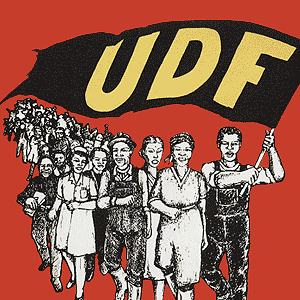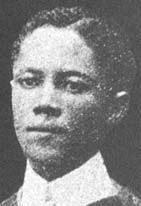Related Research Articles

The Cape Flats is an expansive, low-lying, flat area situated to the southeast of the central business district of Cape Town.

Coloureds are a multiracial ethnic group native to Southern Africa who have ancestry from more than one of the various populations inhabiting the region, including Khoisan, Bantu, Whites, Austronesian, East Asian or South Asian. Because of the combination of ethnicities, different families and individuals within a family may have a variety of different physical features.

Elections in South Africa are held for the National Assembly, provincial legislatures and municipal councils. Elections follow a five-year cycle, with national and provincial elections held simultaneously and municipal elections held two years later. The electoral system is based on party-list proportional representation, which means that parties are represented in proportion to their electoral support. For municipal councils there is a mixed-member system in which wards elect individual councillors alongside those named from party lists.

Islam in South Africa is a minority religion, practised by roughly 5.0% of the total population. It is also one of the fastest growing religions in South Africa. Islam in South Africa has grown in three phases. The first phase brought the earliest Muslims as part of the involuntary migration of slaves, political prisoners, and political exiles from Africa and Asia that lasted from about 1652 to the mid-1800s. The second phase was the arrival of indentured labourers from British India to work in the sugar-cane fields in Natal between 1860 and 1868, and again from 1874 to 1911. Of the approximately 176,000 Indians of all faiths who were transported to the Natal province, almost 7-10% of the first shipment were Muslims.

District Six is a former inner-city residential area in Cape Town, South Africa. Over 60,000 of its inhabitants were forcibly removed during the 1970s by the apartheid regime.

The Kaapse Klopse is a Cape coloured minstrel festival that takes place annually on 2 January in Cape Town, South Africa. It is also referred to as Tweede Nuwe jaar. As many as 13,000 minstrels take to the streets garbed in bright colours, either carrying colourful umbrellas or playing an array of musical instruments. The minstrels are self-organised into klopse. The custom has been preserved since the mid-19th century.

The United Democratic Front (UDF) was a major front for the ANC in the 1980s. The non-racial coalition of about 400 civic, church, students', workers' and other organisations was formed in 1983, initially to fight the new Tricameral Parliament. The UDF's goal was to establish a "non-racial, united South Africa in which segregation is abolished and in which society is freed from institutional and systematic racism." Its slogan was "UDF Unites, Apartheid Divides."
Alex La Guma was a South African novelist, leader of the South African Coloured People's Organisation (SACPO) and a defendant in the Treason Trial, whose works helped characterise the movement against the apartheid era in South Africa. La Guma's vivid style, distinctive dialogue, and realistic, sympathetic portrayal of oppressed groups have made him one of the most notable South African writers of the 20th century. La Guma was awarded the 1969 Lotus Prize for Literature.

Alexander Sinton Secondary School, also known as Alexander Sinton High School, is an English-medium school in Athlone, a suburb of Cape Town, South Africa. The school is located in the Cape Flats, an area designated as non-white under the Group Areas Act during apartheid. The school was involved in the anti-apartheid student uprisings of the 1970s and 1980s. Staff and students at the school made headlines when they barricaded the police into their school in September 1985. The following month, three youths were killed near the school by police officers who opened fire on protesters in the Trojan Horse Incident. It was the first school to be visited by Nelson Mandela after his release from prison. As of 2014, the school has 1,100 pupils, half boys and half girls. The school employs 40 teachers and six non-teaching staff.
Northern Cape is a first-class cricket team that nominally represents the South African province of Northern Cape in the CSA Provincial Competitions. The team is selected and supported by Northern Cape Cricket and plays its home games at the De Beers Diamond Oval in Kimberley.

Manenberg is a township of Cape Town, South Africa, that was created by the apartheid government for low-income Coloured families in the Cape Flats in 1966 as a result of the forced removal campaign by the National Party. It has an estimated population of 52,000 residents. The area consists of rows of semi-detached houses and project-like flats, known as "korre". The township is located about 20 km away from the city centre of Cape Town. It is separated from neighbouring Nyanga and Gugulethu townships by a railway line to the east and from Hanover Park by the Sand Industria industrial park to the west and Heideveld to the north.

Abdullah Abdurahman was a South African politician and physician, born in Wellington, South Africa. He was the first coloured city councillor of Cape Town, and leader of the anti-segregationist movement African Political Organization established in 1902.
Zainunnisa "Cissie" Gool was an anti-apartheid political and civil rights leader in South Africa. She was the daughter of prominent physician and politician Abdullah Abdurahman and mother Helen Potter James. Gool founded the National Liberation League and helped to create the Non-European United Front (NEUF). She was known and loved as the "Jewel of District Six" and "Joan of Arc" by South Africans as a champion of the poor.

Coloured people in Namibia are people with both European and African, especially Khoisan and Bantu ancestry, as well as Indian, Malay, and Malagasy ancestry especially along the coast and areas bordering South Africa. Coloureds have immigrated to Namibia, been born in Namibia or returned to the country. These distinctively different periods of arrivals, from diverse backgrounds and origins have led to a diverse Coloured population. This diversity was even further exploited by South African officials who referred to three distinct groups amongst the coloureds, namely: "Baster", "Cape Coloureds" and "Namibian Coloureds".
The following is a timeline of the history of Cape Town in the Western Cape province of South Africa.
Reverend Zaccheus Richard Mahabane was a South African Politician.He was the President of the African National Congress from 1924 to 1927 and again from 1937 to 1940. He was also a Methodist pastor.

Trafalgar High School is a secondary school in District Six of Cape Town in South Africa. It was the first school built in Cape Town for coloured and black students. The school took a leading role in protesting against apartheid policies. It celebrated its centenary in 2012 and is still running.

Harold Cressy was a South African headteacher and activist. He was the first Coloured person to gain a degree in South Africa and he worked to improve education for non-white South Africans. He co-founded a teachers group which opposed the apartheid Bantu Education Act.

Harold Cressy High School is a secondary school in District Six of Cape Town in South Africa. It was founded in January 1951 as the Cape Town Secondary School. The school has played a substantial role in South African history during the apartheid period and the building is identified as an important landmark.
The Teachers' League of South Africa (TLSA) was an organization for coloured teachers founded in Cape Town in June of 1913. The group, while originally focused on issues surrounding education, became increasingly political in the mid-1940s and started to agitate against apartheid. Due to state suppression, the group became defunct in 1963.
References
- ↑ Adhikari, Mohamed (July 1997). "'The Product of Civilization in its most Repellant Manifestation': Ambiguities in the Racial Perceptions of the APO (African Political Organization), 1909–23". Journal of African History . 38 (2): 283–300.
- ↑ "African People's Organization (political party, South Africa)". Encyclopædia Britannica . Retrieved 16 August 2014.
- ↑ History Archived 12 August 2014 at the Wayback Machine , school site, retrieved 11 August 2014
| | This article about a South African political party is a stub. You can help Wikipedia by expanding it. |
